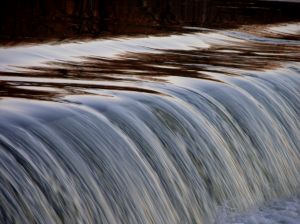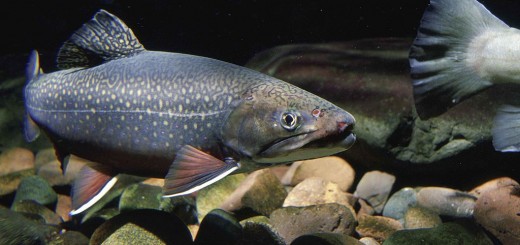Lake Superior Mercury Origins
1Most of the mercury getting into Lake Superior doesn’t come from runoff, according to a new study from scientists at the U.S. Geological Survey. Instead, researchers say, the biggest of the Great Lakes gets most of its mercury through airborne deposition.
This means that much of the toxic, bioaccumulating element makes its way into Lake Superior’s waters through falling rain or snow. And though other Great Lakes, including Lake Michigan, get about half of their totals each from runoff and air deposition, most of Superior’s falls into it from the atmosphere.

Lake Superior. (Credit: U.S. Fish and Wildlife Service – Midwest Region via Creative Commons 2.0)
To make the determination, USGS researchers used isotopic analysis of the lake’s sediments, which allowed them to pinpoint where mercury in the sediments came from. This approach is sort of like looking at a chemical fingerprint because certain isotopes of mercury come from different sources.
Sediment samples were gathered from 58 locations around the Great Lakes region in the work and then analyzed for the mercury isotopes they contained. Results were then compared to mercury signatures found in lake trout and burbot from the lakes. That revealed that fish in Lakes Huron and Superior had more mercury from the atmosphere than from lake sediments.

Lake Superior as seen from Agawa Rock, Lake Superior Provincial Park. (Credit: Wikimedia Commons User Fungus Guy via Creative Commons 3.0)
The results confirm to researchers that it’s still important to solve legacy mercury pollution issues. But in addition to those efforts, they note that work being done focusing on what’s going into the atmosphere, and ultimately into the lake, needs to continue.
Scientists were surprised at just how differently mercury concentrations can range from one end of the Great Lakes to another. But their findings are a good example of the fact that lakes and waterways can be affected by atmospheric mercury deposition, no matter their location.
Full results of the work are published in the journal Environmental Science & Technology Letters.
Know something about Great Lakes mercury problems? What can be improved to help alleviate the issues faced? Please consider leaving a comment to share your thoughts!














[…] of a water body has done little to protect it from the reach of human activities. Things like mercury deposition rates and rising water temperatures proceed unflinchingly as proof that even a secluded lake can be […]